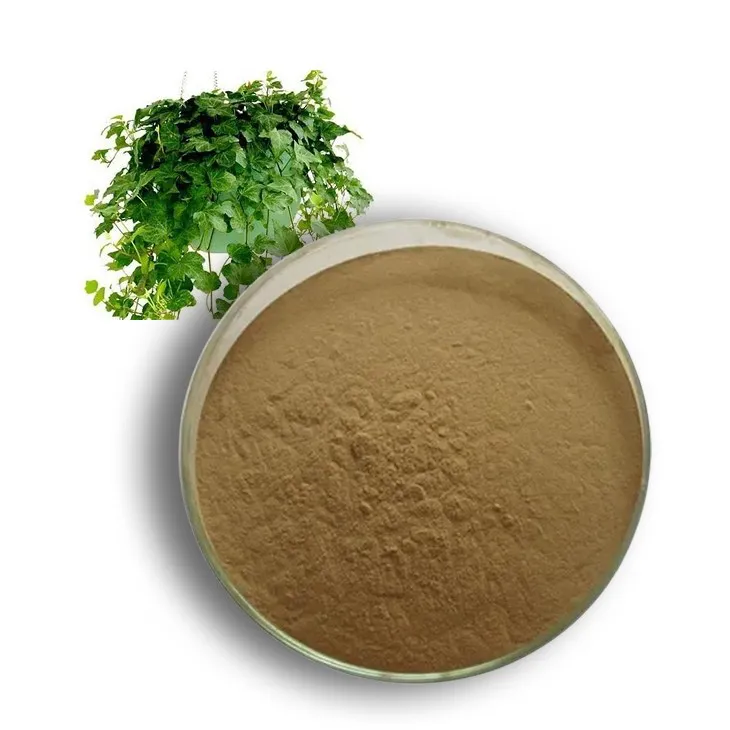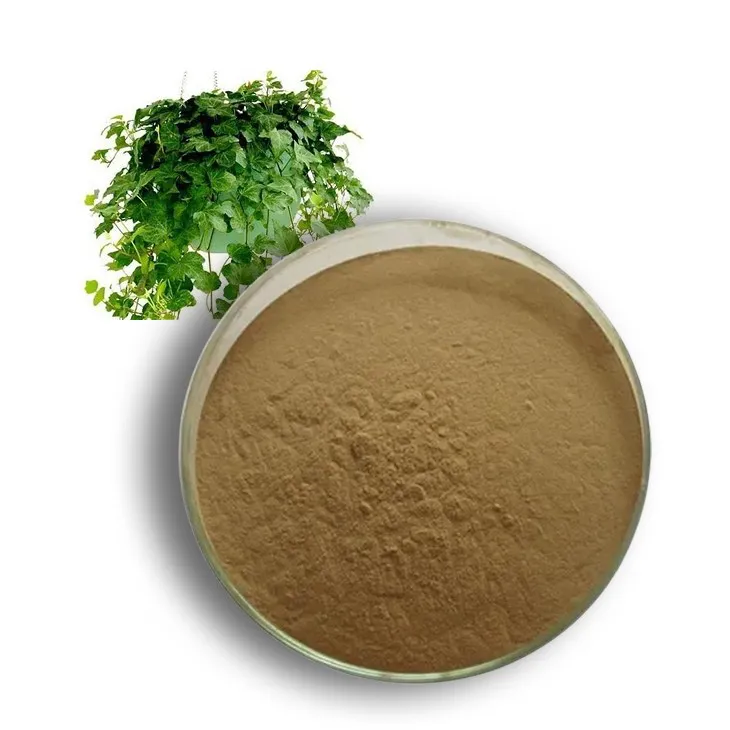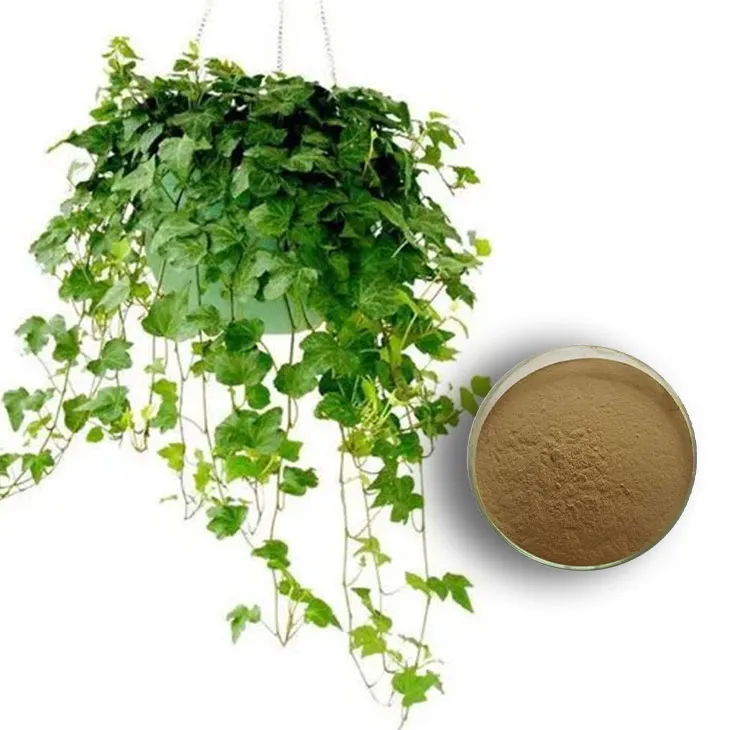- 0086-571-85302990
- sales@greenskybio.com
Manufacturers of Organic Ivy Extract Powder.
2024-12-01

1. Introduction to Organic Ivy Extract Powder Manufacturers
Organic Ivy Extract powder manufacturers play a vital role in the production of a highly valuable natural ingredient. Ivy, when transformed into extract powder following organic processes, offers significant potential for numerous industries. These manufacturers are involved in every aspect of the production chain, which is a complex and multi - faceted process.

2. The Production Chain of Organic Ivy Extract Powder
2.1 Cultivation or Collection of Organic Ivy
The journey of organic ivy extract powder begins with the cultivation or collection of organic ivy in its natural environment. Manufacturers need to ensure that the ivy is sourced in an ethical and sustainable manner. If it is cultivated, they must adhere to strict organic farming practices. This includes using natural fertilizers, avoiding synthetic pesticides, and maintaining a healthy ecosystem for the ivy to thrive. In cases where the ivy is collected from the wild, they must follow regulations to prevent over - harvesting and protect the natural habitats.
2.2 Extraction Process
Once the organic ivy is obtained, the extraction process commences. Manufacturers invest in state - of - the - art equipment for this purpose. There are various extraction methods available, ranging from those with a traditional basis but with modern improvements to the most advanced technologies.
Traditional extraction methods, with a modern touch, might involve maceration or percolation. In maceration, the ivy is soaked in a solvent (usually a natural solvent in the case of organic extraction) for a period of time to allow the active compounds to be released into the solvent. Percolation is a similar process but involves a continuous flow of the solvent through the ivy material.
On the other hand, cutting - edge technologies such as supercritical fluid extraction are also being used. Supercritical fluid extraction uses a fluid (such as carbon dioxide) that is at a supercritical state (having properties of both a liquid and a gas). This method offers several advantages, including a more selective extraction of the desired compounds, a shorter extraction time, and a cleaner end - product as there is no solvent residue.
2.3 Purification and Concentration
After extraction, the resulting liquid extract may need to be purified and concentrated. This is to remove any impurities and increase the concentration of the active ingredients in the extract. Manufacturers use various techniques such as filtration, centrifugation, and evaporation for purification and concentration. Filtration can be used to remove solid particles, centrifugation can separate substances based on their density, and evaporation can remove the solvent to increase the concentration of the active components.
2.4 Drying and Powder Formation
The purified and concentrated extract is then dried to form a powder. There are different drying methods available, such as spray drying and freeze - drying. Spray drying involves spraying the liquid extract into a hot air stream, which causes the solvent to evaporate quickly, leaving behind a powder. Freeze - drying, on the other hand, involves freezing the extract first and then removing the ice by sublimation (direct conversion from solid to gas) under low pressure. The resulting powder is then ready for packaging.
2.5 Packaging
The final step in the production chain is the packaging of the organic ivy extract powder. Manufacturers need to choose the appropriate packaging materials to protect the powder from moisture, light, and air, which can degrade the quality of the product. Packaging also needs to be labeled correctly, providing information such as the product name, ingredients, usage instructions, and expiration date.

3. Ensuring the Integrity of the Organic Nature of the Product
One of the primary concerns for organic ivy extract powder manufacturers is maintaining the integrity of the organic nature of the product. This requires strict traceability throughout the supply chain, from the source of the ivy in the field to the final packaged powder.
Manufacturers need to keep detailed records of every step in the production process. This includes information about the origin of the ivy, the cultivation or collection methods used, the extraction process, and the packaging details. These records are not only important for ensuring the organic nature of the product but also for meeting regulatory requirements.
To ensure traceability, manufacturers may use various technologies such as barcoding or radio - frequency identification (RFID). Barcoding can be used to label each batch of ivy or the final product, allowing for easy identification and tracking. RFID can provide more detailed information and real - time tracking of the product throughout the supply chain.

4. Collaboration with Regulatory Bodies
Organic ivy extract powder manufacturers also need to collaborate with regulatory bodies to ensure compliance with international standards. These standards are in place to protect consumers and ensure the quality and safety of the product.
Regulatory bodies may have specific requirements for the production, labeling, and marketing of organic products. For example, they may require that the product be certified as organic by an accredited certification body. Manufacturers need to follow these requirements and submit to regular inspections to maintain their compliance status.
Collaboration with regulatory bodies also helps manufacturers stay updated on the latest regulations and industry trends. This allows them to adapt their production processes and product offerings accordingly, ensuring that they remain competitive in the global market.
5. Improving Production Efficiency without Compromising Quality
As the demand for organic ivy extract powder continues to grow in the global market, manufacturers are constantly looking for ways to improve production efficiency without sacrificing quality.
One way to improve efficiency is through process optimization. This involves analyzing each step in the production chain to identify areas where improvements can be made. For example, manufacturers may look for ways to reduce the extraction time without affecting the yield or quality of the extract. They may also explore ways to optimize the drying process to reduce energy consumption.
Another approach is to invest in new technologies and equipment. Newer extraction technologies may offer higher yields and better quality extracts. Automated packaging equipment can also improve the speed and accuracy of the packaging process, reducing the risk of errors and increasing overall productivity.
However, while improving efficiency, manufacturers must always ensure that quality is not compromised. Quality control measures need to be in place at every step of the production process. This includes testing the raw materials, the intermediate products, and the final product for purity, potency, and safety.
6. Conclusion
Organic ivy extract powder manufacturers are integral to the production and supply of this valuable natural ingredient. They are responsible for a complex production chain, ensuring the integrity of the product's organic nature, collaborating with regulatory bodies, and constantly striving to improve production efficiency while maintaining quality. As the global market for organic ivy extract powder expands, these manufacturers will continue to play a crucial role in meeting the growing demand and providing high - quality products to various industries.
FAQ:
1. What are the main challenges for organic ivy extract powder manufacturers?
One of the main challenges is ensuring the integrity of the organic nature of the product, which requires strict traceability throughout the supply chain. Another challenge is keeping up with the growing global demand while maintaining high - quality production. They also need to invest in appropriate extraction equipment and collaborate with regulatory bodies to meet international standards.
2. How do organic ivy extract powder manufacturers ensure the product is truly organic?
Manufacturers ensure the product is truly organic by having strict traceability throughout the supply chain, from the collection or cultivation of the ivy in its natural habitat to the final packaging. They also work closely with regulatory bodies and follow international standards for organic production.
3. What kind of extraction methods do organic ivy extract powder manufacturers use?
They use a variety of extraction methods. These can range from traditional methods with a modern twist to cutting - edge technologies. They invest in state - of - the - art equipment for extraction to obtain the ivy extract powder.
4. Why is the role of manufacturers important in the production of organic ivy extract powder?
The manufacturers are important because they are responsible for every step of the production chain. They ensure the product is of high quality, meets organic standards, and is packaged correctly for distribution. Their efforts also contribute to meeting the growing global demand for this natural ingredient.
5. How do organic ivy extract powder manufacturers balance production efficiency and quality?
Manufacturers constantly look for ways to improve production efficiency without compromising on quality. This may involve investing in better equipment, optimizing production processes, and closely monitoring each step of the production chain to ensure both efficiency and quality are maintained.
Related literature
- Organic Ivy Extract: Production and Applications"
- "The Role of Manufacturers in the Organic Extract Industry"
- "Quality Control in Organic Ivy Extract Powder Manufacturing"
- ▶ Hesperidin
- ▶ Citrus Bioflavonoids
- ▶ Plant Extract
- ▶ lycopene
- ▶ Diosmin
- ▶ Grape seed extract
- ▶ Sea buckthorn Juice Powder
- ▶ Fruit Juice Powder
- ▶ Hops Extract
- ▶ Artichoke Extract
- ▶ Mushroom extract
- ▶ Astaxanthin
- ▶ Green Tea Extract
- ▶ Curcumin
- ▶ Horse Chestnut Extract
- ▶ Other Product
- ▶ Boswellia Serrata Extract
- ▶ Resveratrol
- ▶ Marigold Extract
- ▶ Grape Leaf Extract
- ▶ New Product
- ▶ Aminolevulinic acid
- ▶ Cranberry Extract
- ▶ Red Yeast Rice
- ▶ Red Wine Extract
-
Kupilu Extract
2024-12-01
-
Resveratrol extract
2024-12-01
-
Eucommia Ulmoides Extract
2024-12-01
-
Curcumin Extract
2024-12-01
-
Phyllanthus Emblica Extract
2024-12-01
-
White Willow Bark Extract
2024-12-01
-
Milk Thistle Extract
2024-12-01
-
Red Date Extract
2024-12-01
-
Citrus Aurantium Extract
2024-12-01
-
Citrus bioflavonoids
2024-12-01





















